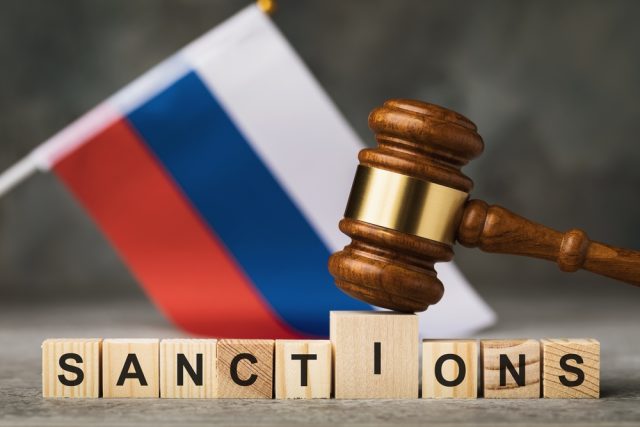
At the latest EU Summit, sanctions against Russia have dominated the debate. The latest point of contention is Russian oil, which accounts for slightly less than one third of all EU oil imports, or half of overall imports of petroleum products. In the following paragraphs, I intend to shed more light on why we are at a point where sanctions must be harsh enough to, hopefully, induce change in Russia, even though the imposition of such sanctions risks further splintering the European coalition, thereby in essence weakening the sanctioning regime.
As I argued in my previous column, sanctions can be used as a deterrent to affect the behavior or policies of the sanctioned country ex ante, that is, before a hostile act takes place or an unwelcome policy is introduced. Sanctions can also be applied ex post so as to prompt a rehabilitating behavior, much like in criminal justice when a convicted party is sentenced to a punishment. Finally, sanctions are a ‘negative’ tool of (economic) war, as opposed to financial and military aid to the invaded country, which would be a ‘positive’ tool.
In the case of Russia, however, the deterring effect is exactly what was missing from the Western coalition’s strategy prior to the invasion of Ukraine on February 24th. By not committing to a clearly-defined set of measures ex ante, that is, before Russia committed the aggression of a sovereign country, Europe and the United States had created expectations in Moscow that any reaction would be weak. Indeed, the Administration in Washington threatened generic sanctions that, after the debacle in Afghanistan, did not appear particularly credible.
By promising generic sanctions without any credible details, the Western coalition gave up any reasonable chance of discouraging the aggression, which, in fact, took place. This is history, one could argue. The problem is that those missteps explain much of what’s happening now and, possibly, in the near future.
Now, in order to induce change in Russian policies, ex post, sanctions must be particularly harsh. This generate two sets of problems. In the first place, as the cost of sanctions is not only on Russia, but also on the countries imposing them, their economies are going to be significantly affected as well. Second, as the cost of those sanctions is asymmetric, some economies within the sanctioning coalition are affected much more than others – in other words, there are relevant distributional effects within the coalition.
For instance, Hungary is vastly dependent on oil imports from Russia, which furnishes some two thirds of its overall oil imports. On the other hand, the US is an exporter of liquefied gas that European countries are increasingly buying in lieu of Russian gas. Because the current sanctions discharge their intended effect only through the ex post channel, they have to be imposed at their maximum level, which exacerbates the (highly asymmetric) cost of those sanctions within the coalition.
Going forward, there is an issue with the sustainability of the current sanctioning regime, with Russia skillfully leveraging on any disunity in the Western front. As we have witnessed, it has proved particularly difficult to reach an agreement on oil sanctions – and the agreement that has been reached is quite narrow.
At the same time, the food crisis triggered by the Russian-Ukrainian crisis requires careful management, so as to enable exports from war-torn Ukraine, but also from the invader Russia. With Russian exports of cereals banned, though, the coalition of sanctioning countries is, in effect, at a crossroads: either they contribute, albeit unwillingly and indirectly, to the food crisis by maintaining the ban on cereals exports from Russia, or they revise the corresponding sanctions, at the risk of further driving a wedge between coalition members, a move that would stress the coalition itself.
The likely consequence is that to bridge widening gaps within the sanctioning coalition, the latter will increase the deployment of positive tools of war, that is, more support to Kiev in terms of emergency funding, arms, and possibly even troops. This is, indeed, what we are seeing.



 Subscribe
Subscribe